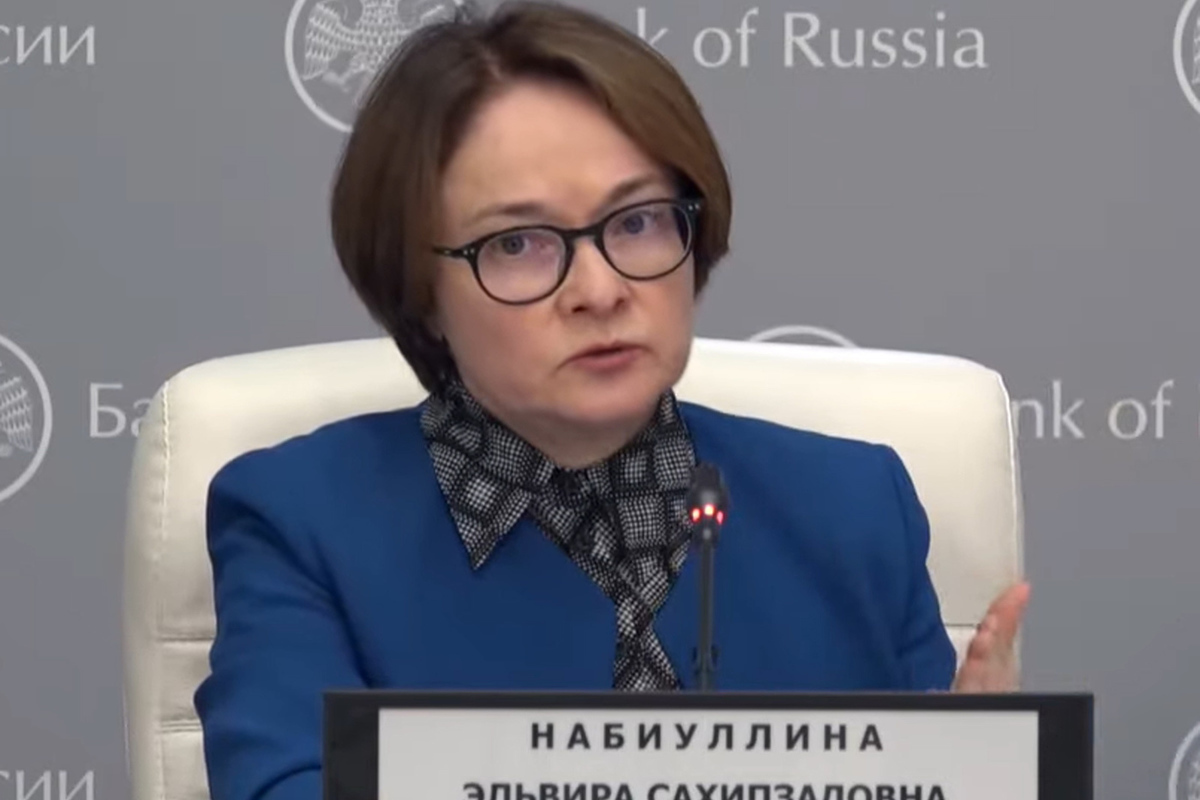Nabiullina: “The Central Bank does not have a psychological mark in the situation with the ruble exchange rate”
[ad_1]

The main risk factor remains rising inflation
With today’s increase in the key rate to 13%, the Central Bank responded to the strengthening of inflationary factors. Among which the ruble exchange rate plays a significant role, but not only it. Perhaps, these words reflected the essence of what was said by the head of the regulator, Elvira Nabiullina, at a press conference following a meeting of the Board of Directors of the Central Bank.
The Russian economy, which experienced a 2.1% decline in 2022, risks entering a phase of overheating. This means that we need to start cooling it down in advance, the Central Bank decided. According to Nabiullina, the main factors in accelerating inflation were, firstly, the growth of domestic demand, outpacing the production capacity, and secondly, the weakening of the ruble.
In the updated medium-term macro forecast, the Central Bank increased its expectations for inflation at the end of the year – from July 5-6.5% to 6-7%. A significant contribution to the current dynamics of consumer prices was made by goods whose prices depend on the exchange rate. For example, cars, clothing and shoes, appliances and electronics – all of them have already risen in price against the backdrop of the August fall of the ruble.
As the Central Bank assumes, lending in the country will continue to grow at an accelerated pace, and the population’s propensity to save will decline. Factors such as the shortage of available labor at enterprises and the uncertainty of the geopolitical situation, with potentially negative consequences for the foreign trade of the Russian Federation, also make a significant contribution to the strengthening of pro-inflationary risks.
The weakening of the ruble is associated with a number of circumstances that complement each other and create a cumulative effect. In particular, with a reduction in foreign exchange earnings due to “a significant decrease in the value of exports during this year.” In addition, citizens were reluctant to save in rubles, and Russian companies bought assets from foreign owners for foreign currency.
In general, Elvira Nabiullina this Friday voiced the same theses that were voiced during her previous speeches following the July and August meetings of the Central Bank on the key rate. In particular, she stated that in order to achieve the inflation target of 4% by the end of 2024, “a long period of tight monetary policy in the Russian Federation will be required.” This means that in the foreseeable future the rate will either be raised (which is more likely) or kept at the current level.
When asked by a MK correspondent whether there is a certain “psychological” threshold for the ruble exchange rate, upon reaching which the Central Bank begins to take emergency measures, Nabiullina replied: there is no such mark, since the exchange rate is floating. At the same time, the regulator takes into account that the weakening of the ruble is a pro-inflationary factor.
Quite a lot was said at the press conference about mortgages, which are growing at an accelerated pace – due to an increase in the share of preferential programs: as of September 1, the growth was about 30% in annual terms. According to Nabiullina, the Bank of Russia is concerned about the involvement of riskier groups of clients. Over the past two years, the issuance of housing loans to citizens with a high (more than 80%) level of maximum debt burden (MDL) has almost doubled. And the share of mortgages with a low down payment is up to 63%. This, the regulator notes, leads to the persistence of a gap (at 40%) in housing prices in the primary and secondary markets – about 40%.
“As a result of raising the key rate to 13%, interest rates on loans and mortgages will increase,” notes Alexander Shneiderman, head of the sales and customer support department at Alfa-Forex. “This will make borrowed funds less accessible and more expensive for the population. At the same time, higher deposit rates will bring citizens slightly more income. Which, however, may not be enough to compensate for the increase in costs for loans and mortgages.”
[ad_2]
Source link






